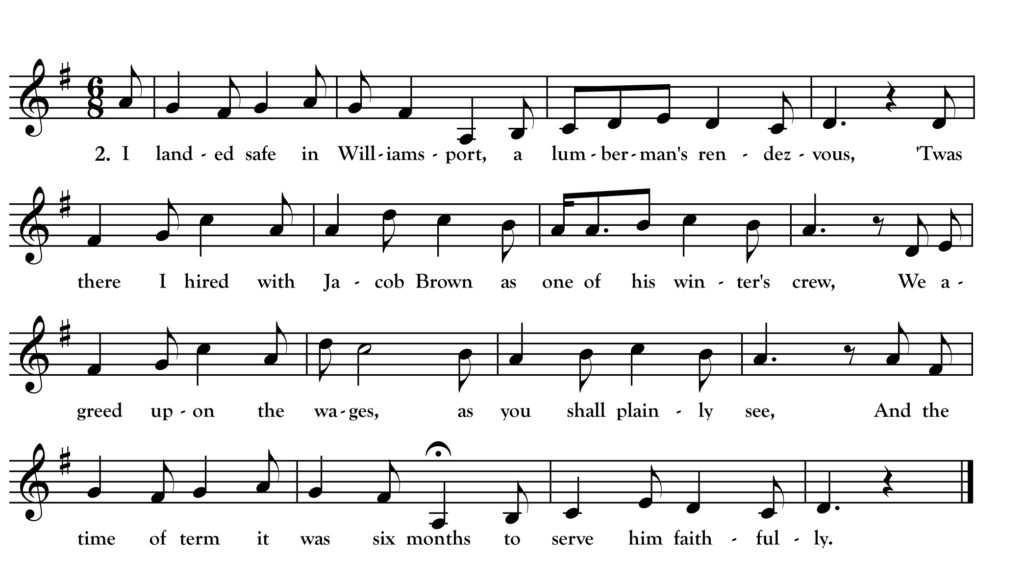The Broken Shovel

Good Christians all ah come lend an ear,
Unto my ditty and the truth you’ll hear,
It’s of Barney Gallagher so bold and true,
Yarrah that broke me shovel,
Yarrah that broke me shovel,
Yarrah that broke me fine brand-new shovel in two.
When the whistle blew and the shovel was broke,
Old Neddy Kearn was the first man spoke,
Saying “Barney Gallagher come tell me true,
What for you broke me shovel,
What for you broke me shovel,
What for you broke me fine brand-new shovel in two?”
Oh Barney Gallagher in a stuttering way,
“I’ll c-crack your jaw if I hang that day,
To ins-s-sult a m-m-man ah so b-b-bold and true,
About your b-b-bloody shovel,
About your b-b-bloody shovel,
About your bloody shovel that was broke in two.”
Barney and McGlynn, they both pitch in,
Like Corbett and Mitchell they form a ring,
The crowd around began to roar,
When who the devil entered,
When who the devil entered but the Pretta-Mor.
“Hold on,” says the Pretta, “we must have fair play.
He’s a Rosses man, we will win the day,
But if you touch him, then I’ll touch you.”
That was all about the shovel,
That was all about the shovel that was broke in two.
This fascinating song originated in the coal mining community of Hazelton, Pennsylvania around 1890 where many men from the Rosses of Donegal labored and where to break another miner’s shovel was no small offense. There are several intriguing aspects of this song including the use of the nickname “Pretta-Mor”—no doubt a corruption of prátaí mór (big potatoes) and evidence of Irish language in the mines. Famed Donegal fiddle player Néillidh Boyle (grandfather of Kathleen Boyle, piano player with Cherish the Ladies) was born in 1889 down the road from Hazelton in Easton, Pennsylvania where his father Patrick worked as locktender on the Lehigh Canal before returning to Donegal in 1898. Boyles, Gallaghers, McGlynns and others came in droves from Donegal to Pennsylvania in the late 1800s in search of canal and mine work.
The above is my transcription of a recording made by folklorist George Korson of singer Daniel Brennan in 1946. Many thanks to my friend Steve Stanislaw in Pennsylvania (a wonderful singer who interprets songs like this perfectly) for introducing me to this amazing song.

